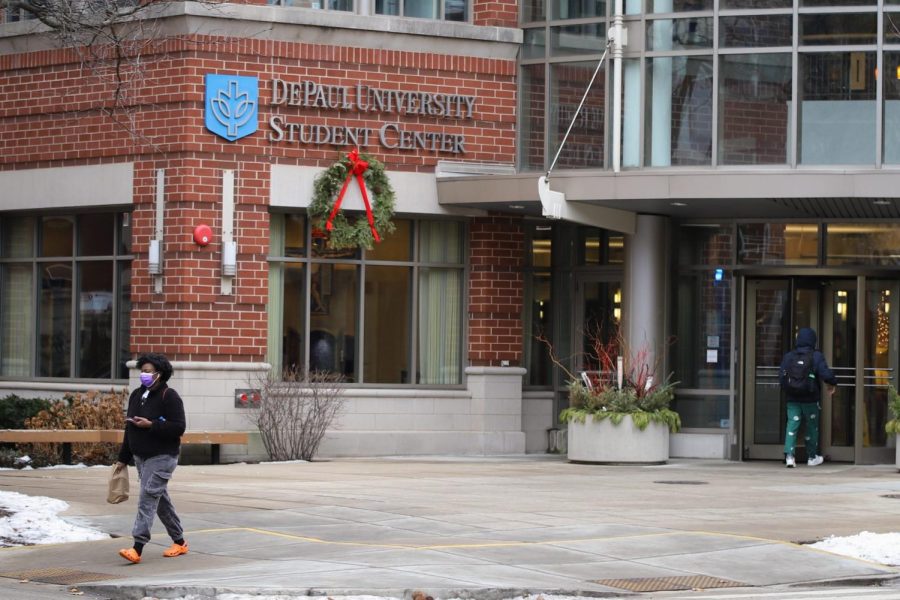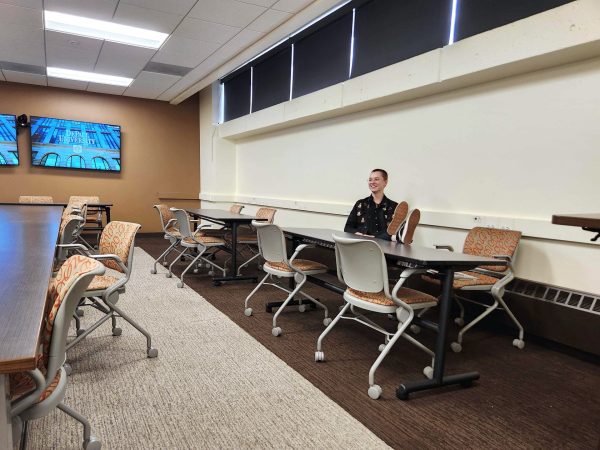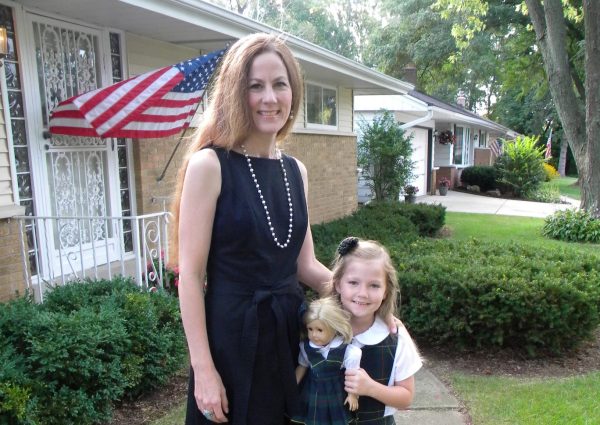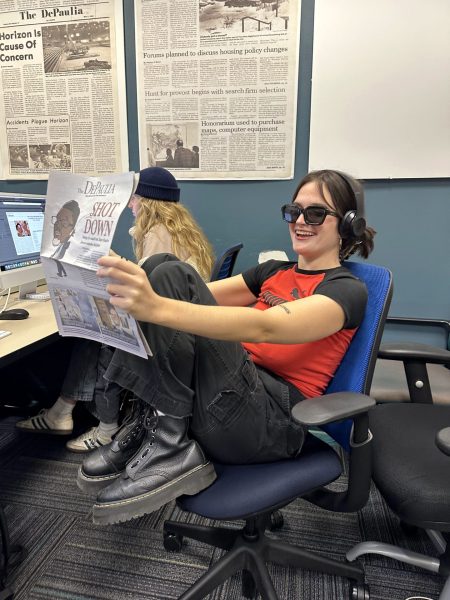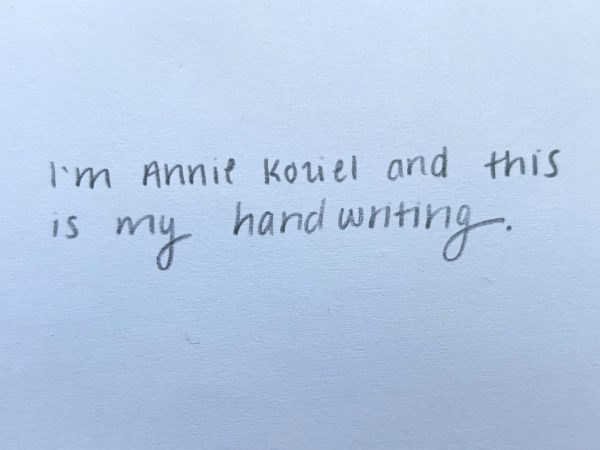University should focus more on student needs than fiscal strength
Maddy Maes for The DePaulia
Students walking in and out of DePaul’s student center, which houses the Lincoln Park Counseling Center.
In the 2020-2021 President’s report, President Esteban laid out 6 parameters by which the university administration judges its own successes and failures. The first metric listed is “Mission” and the last on the list is “Fiscal Strength”. This would seem to be the proper order of priorities for a mission based institution, but recent events regarding student resources may indicate that, in practice, those priorities are flipped.
On Nov. 11, 2021, the Student Government Association hosted a special meeting at which the new Director of University Counseling Services, Tow Yau, presented his plan for the future of the department in light of the controversy surrounding a lack of services available to students at the beginning of the school year. The DePaulia covered this meeting to expand on previous stories and I was the contributing photographer present.
The meeting that proceeded led to an outpouring of emotional testimony and questions from student government representatives expressing their frustration with the department. Most of this was directed at Yau, which led to frustration from him in return, with The DePaulia in particular, as he felt that previous reporting from the paper had misrepresented his work in the department.
Nothing ever got out of hand. Both Yau and the SGA senators should be commended for making the effort to meet and civilly discuss a topic as important as mental health services for our students, but for both parties, the target of their grievances may likely have been misdirected. Throughout the question and answer portion of the meeting, there was one topic in which clarity seemed to elude both Yau and the SGA, the funding for his department.
While Yau did not go into detail about any issues with funding for his department, he did in several instances plead with the SGA senators for their assistance by petitioning the school administration for more resources to be directed to the UCS. These resources would, in theory, be beneficial in the process of hiring new full-time staff to replace those who had left the department during the initial phase of the pandemic. So far in the 2021-22 school year, the department has been able to hire four part-time counselors to replace them. What seems to be the case here is that there is an identifiable problem, a lack of counselors and possibly a lack of funding for the UCS, but not an easily identifiable solution. This is further complicated by the fact that it is only viewable on the surface level. In a previous statement to The DePaulia, DePaul Vice President of Student Affairs Gene Zdziarski said, “The university does not provide unit-level budget information.”
Observing this whole situation in person and watching it all play out in print and on social media, I found myself wondering why it was that our university administration could not efficiently address the concerns and mental health needs of its students and would not “provide unit-level budget information” to its student newspaper to give clarity to the issue. This prompted a look into the school’s budget records to see what level of budget information could be viewed if not the “unit-level” (a term which, in this case, refers to the expenditures and budget of a single unit or small department).
If someone within the DePaul community wants to examine the operating budget of the university, the process is relatively easy and worthwhile for anyone with a campus connect login and a curiosity for how their tuition money is spent. All that one needs to do is go to their financial affairs page and check under the “reports” tab. Be wary of what you do with that information though, because before students can even view the operating budget reports of the institution to which they or their families pay tens of thousands of dollars to, there is a sharp disclaimer under the “reports” tab which states that “Re-publication or external use (outside the university)” of that information is strictly prohibited.
I will not discuss any exact financial figures here in this article, but what I will say is that it can be reasonably deduced from the budget information that the university, if it so chooses to, could easily fund for its students a class-A counseling services department including both telehealth options (like the MySSP program we started the year with) as well as in-person counselors for students who may need a more personal experience. To put it into perspective, based on the data in the budget report, a $100,000 single-year salary would equal less than 0.1% of the unrestricted funds the endowment is expected to have on hand at the end of 2022. How much of a financial burden then would several full-time college counselors’ salaries be?
There is indeed a shortage of college counselors nationwide, and a surplus of openings for those positions, this is not under dispute. What is under dispute though is the university’s ability to attract counselors who want the best compensation for their work that the market can offer. DePaul pays our men’s head basketball coach over $1 million a year because it has been deemed that the university needs his services urgently. There is no good reason why this logic which applies to our athletics department should not also apply to the university’s mental health professionals. If our university community is “Grounded in Mission” as the 2020-21 President’s Report states, then this administration must ask itself as it asks of us, “What must be done?”
What is apparent from all of this is that there is a disconnect between mission and action on behalf of our university’s administration, and it is manifesting in negative outcomes for students. This is not just a problem with the UCS, and the former paragraph is not an indictment of the dedicated work of the athletics department. Rather, it is an inquiry into the priorities of the administration which manages our budget and the priorities of our school.
We are now two years into what is likely the most unprecedented period in the history of this university, and our students’ mental health is suffering because of it, and yet we only have four part-time counselors (For an undergraduate student body of over 11,000) to show for it. Meanwhile, in the last three years, the university’s endowment has grown by $359 million; I implore them to use it wisely.


